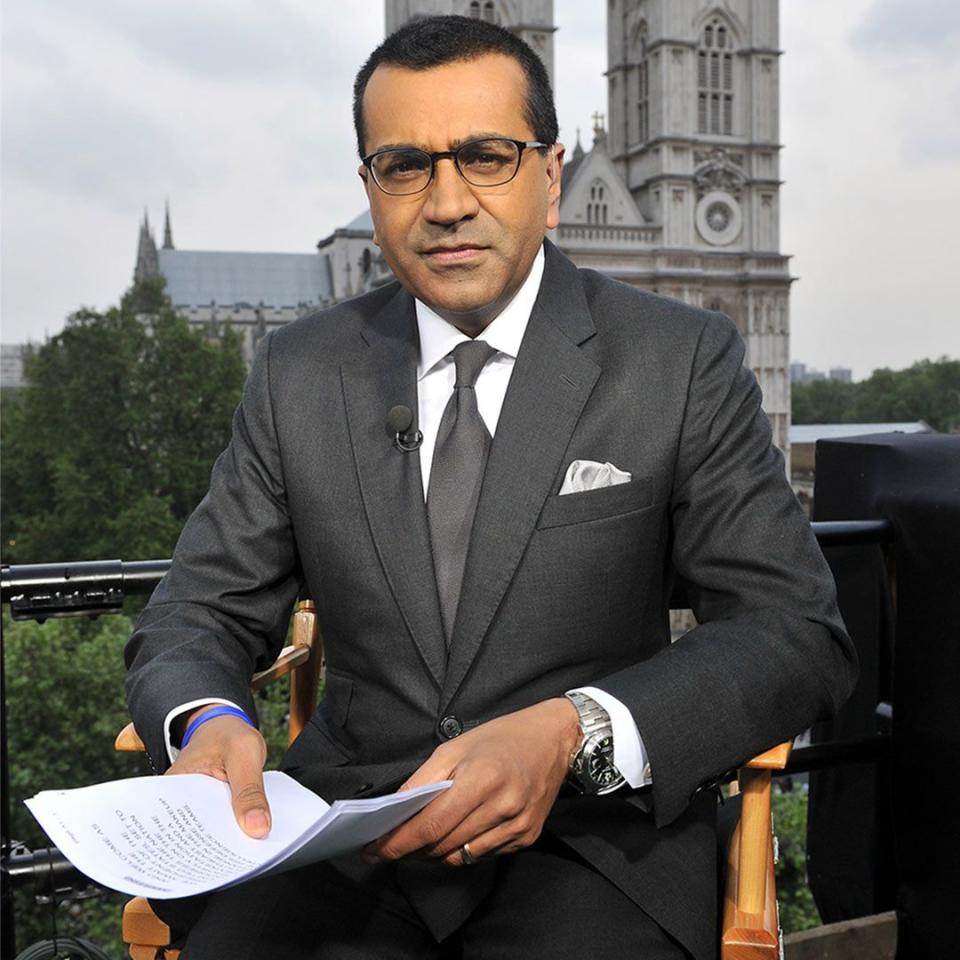Martin Bashir Speaks Out After Inquiry of His Princess Diana Interview: 'I Never Wanted to Harm Diana'

- Oops!Something went wrong.Please try again later.
- Oops!Something went wrong.Please try again later.
Pool Photograph/Corbis/Corbis via Getty Images Martin Bashir interviews Princess Diana
Journalist Martin Bashir is speaking out after an official BBC inquiry found he used "deceitful methods" to secure his controversial 1995 interview with Princess Diana.
In his first interview since the results of the inquiry were released on Thursday, Bashir said he is "deeply sorry."
"I never wanted to harm Diana in any way and I don't believe we did," he said in an interview with The Sunday Times. "Everything we did in terms of the interview was as she wanted, from when she wanted to alert the palace, to when it was broadcast, to its contents."
"I can't imagine what their family must feel each day," he continued in reference to Diana's sons Prince William and Prince Harry.
The report, which was compiled by former High Court judge Lord John Dyson, states that Bashir, 58, breached the BBC's editorial guidelines by creating two false bank statements to improperly manipulate Diana into giving the interview, according to a report in The Daily Telegraph.
Following his investigation, Lord Dyson says he is "satisfied" that Bashir commissioned fake bank statements and showed them to Diana's brother Charles Spencer. He did this to "deceive and induce" Spencer to gain his trust and arrange a meeting with the princess," he continued. "In doing so, he was able to convince Diana to do the notorious interview."

Mark Allan/NBCU Photo Bank via Getty Martin Bashir
In his interview with The Sunday Times, Bashir also spoke out against a statement William made after the report was released, in which the royal criticized the BBC.
In his statement, the Duke of Cambridge — who did not mention Bashir by name — said that "the BBC's failures contributed significantly to her fear, paranoia and isolation that I remember from those final years with her."
Bashir has denied this. "Even in the early 1990s, there were stories and secretly recorded phone calls. I wasn't the source of any of that," he told the newspaper. "I don't feel I can be held responsible for many of the other things that were going on in her life, and the complex issues surrounding those decisions."
In the 1995 interview, Diana famously said there were "three of us in this marriage, so it was a bit crowded." The following year, she was divorced from Prince Charles and she tragically died following a car crash in Paris in 1997.
Listen below to our daily podcast PEOPLE Every Day for more on details on the report about former BBC journalist Martin Bashir's Panorama interview with Princess Diana.
While speaking with The Sunday Times, Bashir specifically said that showing Spencer the forged bank documents "was wrong" and something he "deeply regrets" — although he claimed that "had no bearing" on his 1995 sit-down with Diana.
Asked if he will be able to forgive himself, Bashir replied, "that's a really difficult question because it was a serious error."
"I hope that people will allow me the opportunity to show that I am properly repentant of what happened," he added.
In a previous statement on the BBC following the release of the report, Bashir — who quit his post as BBC religion editor ahead of the network's release of the inquiry report — apologized for mocking up the documents but said he remained "immensely proud" of the interview.
Can't get enough of PEOPLE's Royals coverage? Sign up for our free Royals newsletter to get the latest updates on Kate Middleton, Meghan Markle and more.
Following the release of the report, BBC Director-General Tim Davie issued an apology in a statement.
"It is clear that the process for securing the interview fell far short of what audiences have a right to expect. We are very sorry for this," the statement read. "While today's BBC has significantly better processes and procedures, those that existed at the time should have prevented the interview being secured in this way."
"While the BBC cannot turn back the clock after a quarter of a century, we can make a full and unconditional apology. The BBC offers that today," the statement continued.

